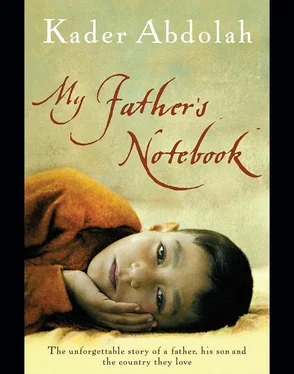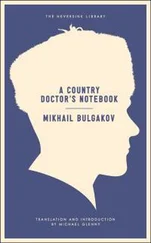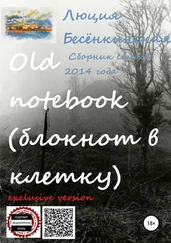“Oh, no. Or, actually, they did. At first everything was going fine. They were banging away with all their might, and you could see the road taking shape. Then, just below the southern wall of the cave, they ran into a rock that was unusually hard. The men pounded at it — first one shift, then another — but hardly made a dent. The work had gone well the first two weeks. After that, their strength was gone. The men were thin and worn, exhausted, barely recognisable. The engineers were so terrified of the shah that they hadn’t realised the men were broken. They panicked. Reza Shah would be arriving soon and the men would still be banging away at that one rock.
“The shah wasn’t an educated man, nor did he come from a family of book readers, but he was smart, especially when it came to ordinary people. He took one look at the workers and knew what the problem was. He fired the chief engineer. ‘Go and pack your bags, bookworm. You don’t know what work is. All you can do is read, read, read.’
“Reza Shah ordered ten big kettles to be brought from the army barracks. He knew that a worker needed more than bread and goat cheese if he was to smash rocks for weeks at a time. So ten fat cooks came running up with ten big kettles. The soldiers were ordered to shoot five mountain goats and hand them over to the cooks.
“Work was suspended for the day. All that the men had to do was eat, drink, smoke and rest.
“That same evening the shah returned with a new engineer. He was determined not to go back to Tehran until the railway tracks had reached the other side of the cave.
“Early the next morning, even before the sun was up, the shah climbed up to the cave. A soldier, carrying a bag of money, trotted along behind.
“The men were lined up with their pick-axes resting on their shoulders. They waited for the shah to reveal his new plan.
“The shah took off his tunic, grabbed a handful of money and positioned himself on top of a rock. He pointed his baton at one of the men.
“‘You!’
“The man stepped forward.
“‘And you—’
“‘No, not you, the man next to you.’
“The other man stepped forward. It was your father. Of course, he hadn’t heard the shah, but his fellow workers had tapped him on the shoulder.
“The shah selected eleven strong men.
“‘Listen!’ the shah said. ‘After today, I don’t want to see this rock ever again. Every time you chip off a piece, I’ll give you one of these bills. Who wants to go first?’
“Of course, your father didn’t know what the shah was saying, so he couldn’t be first. But the first man brought the pick-axe down with all his might and chipped off a piece. ‘Here’s your money,’ the shah said. ‘Now you!’ He pointed at your father. Only then did your father understand what was going on. He slammed his pick-axe down so hard that a huge chunk of rock flew off. The shah smiled.
“‘Here, young man, I’m giving you two bills. Next!’
“And so it went. The rock was smashed to pieces, and those eleven men went home utterly broken and exhausted. But that night, everyone in the village knew that Reza Shah had tucked a wad of bills into your father’s pocket. And that Aga Akbar had then collapsed.
“There was a newspaper photographer, whose job it was to record the work on the railway. The shah pointed at your father, lying there on the ground. The moment he saw the shah point, your father grabbed his pick-axe and leapt to his feet.
“‘Put the pick-axe on your shoulder,’ the photographer instructed him. ‘Hold up one of those spikes. Right, that’s good. Now don’t move.’ But your father turned and angled himself slightly so that his biceps showed up better in the picture.
“The whole village was talking about it and laughing that night. Everyone in Saffron Village was proud of having a picture in the newspaper.
“Those eleven men became the richest men on Saffron Mountain. They built new houses out of stone, just like the houses in the city. Everyone wanted to give their daughters to those men. They married the most beautiful girls in the village.
“But we couldn’t find a girl, a suitable girl, for your father. Not then, at any rate. Life is like that, my boy, though it’s also full of surprises.”
“You know, Uncle, I’ve heard a lot of bad things about Reza Shah. The building of the railway has been heavily criticised. What do you think?”
“Listen, my boy, didn’t I just finish saying that I don’t know anything about politics? Don’t ask me. I’ve never been much of a one for reading newspapers, either, especially not back then. I only read my own books, or old books, poetry, history. I know nothing about criticism. What I do know is that Saffron Mountain is no ordinary mountain. It’s not simply a pile of rocks, it’s our country’s spiritual legacy. Our roots can be found in its boulders and crevices. And I’m not just referring to the cave, because there’s more on Saffron Mountain. The sacred well, for example. The mountain lives and breathes. Go into the cave and stand still. You’ll hear it. Kneel down by the sacred well and listen. You’ll hear Saffron Mountain’s heart beating. And to think they suddenly started blasting our mountain with dynamite and pounding it with English pick-axes.”
“Why did you send my father off to work there?”
“I didn’t. I simply explained what was happening. Besides, he never listened to what I said. He always did whatever the other boys his age were doing.
“Looking back on it, though, I see that things have worked out all right. I was afraid that the mountain wouldn’t survive. Now, after so many years, I can see that the mountain has recovered. Bushes and flowers have sprung up on the slopes and covered up the scars. Mountain goats graze between the rails and the baby goats leap from one railway sleeper to another. The mountain has accepted the railway and assimilated it. You can hardly see the traces.
“The train will be here soon. It doesn’t make much noise, and that’s good. Our ancient Saffron Mountain has acquired something new, something modern. A train with little red cars that chug up the mountain. Life is like that, my boy. That’s just the way things are.”
We suspect that Aga Akbar wrote
about his friends in this section.
And about his wife.

All the birds had started making their nests, all except Aga Akbar. He had no mate. No wife.
By then the other strong men, who had also built stone houses, already had children. Aga Akbar’s house, however, was still empty.
In those days he came into frequent contact with prostitutes. That was because of his work: he called on customers and mended their carpets.
Back when Aga Akbar was twelve, Kazem Khan had taken him to see an old friend in another village. Uwsa Gholam had a small business up in the mountains. He made natural dyes out of the roots and flowers of plants that grew on Saffron Mountain. People came to him from all over the country to match the original colours in their carpets.
In fact, Uwsa Gholam made a living out of mending carpets. Old and expensive carpets were always getting damaged. If the hole or tear wasn’t mended, the rest of the weave would gradually come unravelled, too. Not everyone, though, can mend a carpet. In unskilled hands, a mend will forever be a fresh wound in the old weave. Uwsa Gholam was one of the best carpet-menders in the country, but he was getting old. His eyes weren’t as good as they used to be. He could no longer do his work.
Kazem Khan knew that Aga Akbar would make a poor farmer. He wasn’t suited to a life of ploughing fields or tending sheep. He needed to do work that required him to use both his hands and his head. That’s why Kazem Khan had brought him to Uwsa Gholam.
Читать дальше













